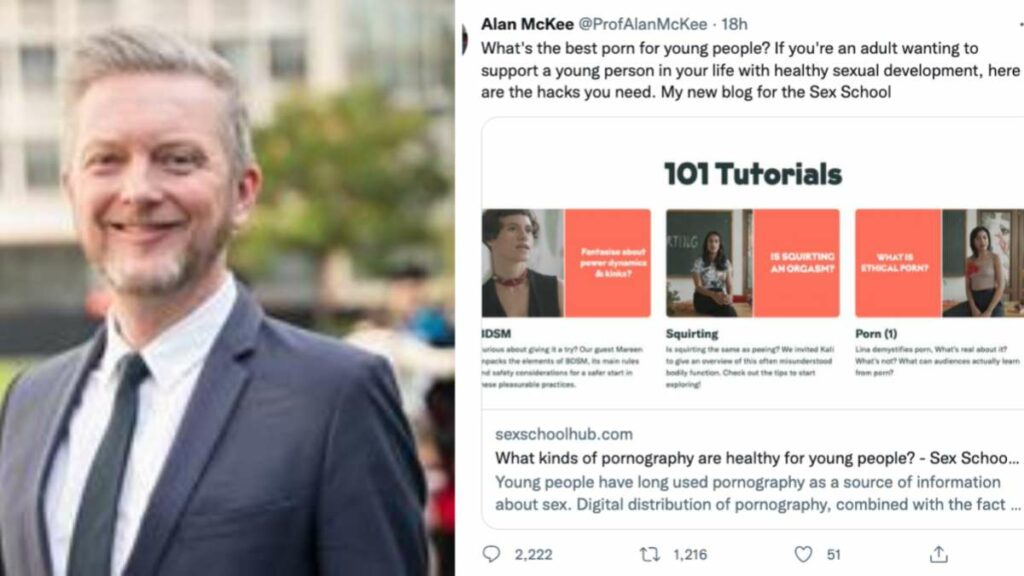Pornography clearers act with increasing nonchalance and without contradiction. In Italy as in Australia. In fact, a professor at the University of Sydney has published an article entitled What types of pornography are healthy for young people?
Alan McKee, Professor of Digital and Social Media in the Faculty of Arts and Social Sciences, argues that “with the increasing availability and range of pornography available, it’s important that we do everything we can to help young people become porn literate and identify the pornography that’s going to help them grow up as healthy, happy sexual adults.”
McKee also says he and his faculty colleagues have made contact with some 30 “experts from around the world” to discern “what criteria to use to decide what counts as healthy porn.” After all, Professor McKee has already authored a paper on “healthy sexual development and entertainment education for healthy sexuality.”
Healthy sexual development?
Experts consulted by McKee argue that “negotiation of consent” for pornographic content, including “explicit declaration of sexual desires” by “actors,” is appropriate. All in the name of transparency and not to feed any form of “exploitation”.
After a “four-year” study, however, the team of experts came to “partial and contradictory” conclusions about the effects of pornography, but McKee instead remains convinced that the claims that “porn is bad for you” are “exaggerated.”
The Australian scholar insists that the studies cited do not address “healthy sexual development” at all; instead, they should address “sexual communication, sexual pleasure, sexual consent, acceptance of one’s sexual identity, and so on.”
In contrast, the articles in the study retain a more than conservative approach, asking pornography consumers questions regarding their risk of infidelity or involvement in violent sex practices.
Those “bigots” at UNICEF….
The Post Millennial reports that Professor McKee is also an “advocate of gender transition for children.” Whether there is a connection between this belief and the scholar’s claims about pornography is, however, to be verified.
I wonder if, instead, McKee, in his own research, took into consideration that UNICEF report which warns that “pornographic content can harm children.” “Exposure to pornography at a young age,” UNICEF says, can lead to “poor mental health, sexism and reduction of the person to a mere object, sexual violence and other negative outcomes.” The most insidious risk, however, as the UN agency points out, is to lead children to view the “abusive and misogynistic” content of pornography as “normal and acceptable.”
Numerous other studies demonstrate a correlation between pornography and rape, and it is highly likely that Professor McKee either ignores these sources on purpose or considers them scientifically unfounded.
But, much more simply, it is evident how the protection of the innocence of the youngest must prevail over the pleasure (though still upstream of what this means and its morality) of adults. And that it is by no means necessary to consume pornographic content as a teenager in order to have a satisfying sex life as an adult. In fact, the exact opposite is true.
